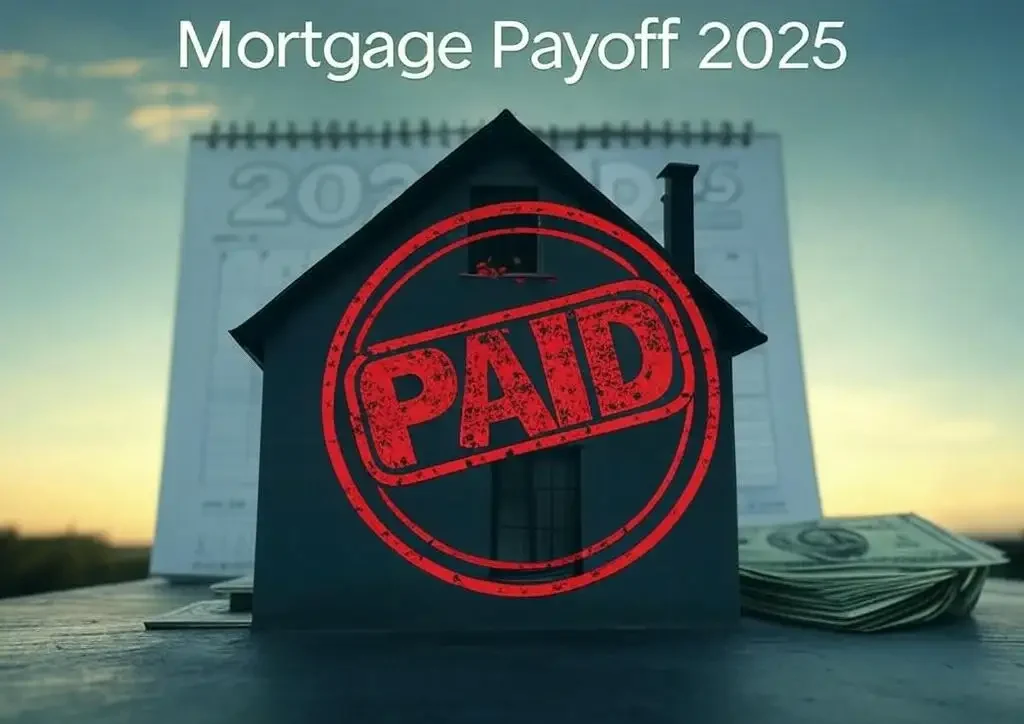Editor’s Note (2026 Update): The math of paying off a mortgage has changed. In 2021, cheap debt (3%) was an asset.[1] In 2026, expensive debt (7%) is a liability. I have updated this guide to help you calculate the “spread” between your rate and your savings.
Are you torn between paying off your mortgage early to achieve financial freedom or keeping it for potential tax benefits and investment growth?
In 2026, this decision is more critical than ever due to rising interest rates, updated tax laws, and economic uncertainty.
In 2026, the answer depends entirely on your interest rate. We have split this guide for two groups: Group A (The Lucky Ones) with rates under 4% (keep the debt), and Group B (The New Buyers) with rates over 6% (pay it off).This guide uses the latest 2026 data to help you decide.
With step-by-step advice, real-world examples, and downloadable tools, you’ll have everything you need to make the best choice for your financial future.
Contents
Why This Decision Matters in 2026 (The 7% Reality)
Three major shifts in 2026 make the mortgage payoff question more relevant than ever:
- Interest Rates Are Climbing
The average 30-year fixed mortgage rate is hovering around 6.5% – 7.0% in early 2026.[1] Paying off a 7% mortgage is equivalent to getting a guaranteed 7% return on your money—something the stock market cannot promise. - Tax Law Changes Reduce Benefits
The Standard Deduction is Higher. In 2026, the Standard Deduction for married couples is projected to exceed $30,000 (adjusted for inflation). Unless you have massive interest payments, you likely won’t itemize, meaning the ‘tax benefit’ of keeping your mortgage is a myth for 90% of homeowners. - Economic Volatility Is Up
With recent market volatility, the guaranteed return of paying off your mortgage (equal to your interest rate) offers a safer, predictable alternative for risk-averse homeowners.
These trends create a unique landscape for your decision. Whether you’re focused on debt reduction or maximizing wealth, understanding these factors is key to choosing wisely.
Step-by-Step Guide to Paying Off Early in 2026
Ready to pay off your mortgage early? Follow these practical steps tailored to current economic conditions:
- Check for Mortgage Prepayment Penalties
- Currently, about 20% of loans still carry penalties (typically 1-2% of the remaining balance if paid off within the first 5 years). For a $250,000 loan, this could mean a $2,500 fee—verify with your lender to avoid surprises.
- Calculate Your Interest Savings
- Use a mortgage calculator to see your potential savings. For example:
- The High-Interest Reality: A $300,000 loan at 7.0% costs over $418,000 in total interest over 30 years. Paying this off early eliminates that massive cost.
- The Low-Interest Contrast: That same loan at 3.0% only costs $155,000 in interest. The urgency to pay it off is much lower.
- See the table below for more scenarios:
| Scenario | Mortgage Rate | Monthly Payment | Total Interest Paid | Verdict |
|---|---|---|---|---|
| Legacy Loan | 3.0% | $1,265 | $155,332 | ❌ Don’t Pay Early (Invest instead) |
| 2026 Buyer | 7.0% | $1,996 | $418,527 | ✅ Pay Off ASAP (Guaranteed 7% return) |
- Compare Investing Options
- In 2026, the S&P 500 is forecasted to return 7-8% on average, but with volatility. If your mortgage rate is 7%, paying it off gives you a guaranteed 7% return. Most financial experts agree: taking a guaranteed 7% is smarter than gambling for a potential 8% in the stock market.
- Assess Current Tax Implications
- With the new $500,000 deduction cap, interest on loans above this amount isn’t deductible. For a $600,000 loan, only the first $500,000 qualifies, reducing your tax savings. Consult a tax advisor to see how this impacts your situation.
- Make Extra Payments Strategically
- Can’t pay off in full? Add $200 monthly to a mortgage payment on a $250,000 loan at 6.5%.
- The Result: You will cut over 5 years off your loan term.
- The Savings: You will save nearly $92,000 in interest.
- The Logic: Because your rate is high, every extra dollar saves you significantly more than it did in the low-rate era.
- Can’t pay off in full? Add $200 monthly to a mortgage payment on a $250,000 loan at 6.5%.
Refinancing as an Alternative in 2026
If paying off your mortgage in full isn’t feasible, refinancing could be a smart middle ground:
- 2026 Refinancing Rates: 15-year loans average ~5.8%, compared to ~6.6% for 30-year loans.
- Savings Example: Refinancing a $300,000 loan from a 2024 rate of 7.5% down to a 2026 rate of 5.8% saves roughly $340 per month in interest.
- Break-Even Calculation: With $6,000 in closing costs, divide by your monthly savings ($340) to find your break-even point—about 18 months. If you plan to stay in the home longer than that, refinancing saves you money.
Refinancing lets you accelerate your payoff timeline without draining your savings, making it a flexible option for today’s market.
Case Study: John’s 2026 Mortgage Decision
Meet John, who bought a home in 2026 with a $300,000 mortgage at 6.8%. Unlike buyers a few years ago, his interest payments are brutal—costing him nearly $2,000 a month just in interest.
John decides to pay an extra $500 per month toward his principal.
- The Result: He pays off the loan 11 years early.
- The Savings: He saves over $180,000 in total interest payments.
After crunching the numbers, John chose to pay off his mortgage early. The guaranteed savings and peace of mind outweighed the potential investment gains, especially given the uncertain market.
Common Mistakes to Avoid in 2026
Don’t let these pitfalls derail your decision:
- Ignoring Prepayment Penalties
While less common today, some non-qualified mortgages and private loans still carry prepayment penalties. Always verify with your lender to avoid a surprise fee. - Overlooking 2026 Tax Changes
Tax Reality Check: The Tax Cuts and Jobs Act limits the mortgage interest deduction to the first $750,000 of debt for new loans. Furthermore, with the Standard Deduction exceeding $30,000, most couples will not save a single penny in taxes by keeping their mortgage. Do not keep debt for a tax break you likely can’t use. - Focusing Only on Debt Reduction
If your mortgage rate is 4.8% and investments average 6%, paying off early could cost you $20,000 in growth over 10 years. Balance debt freedom with wealth-building.- ⚠️ Critical Warning: House Rich, Cash Poor.
- Never pay off your mortgage if it leaves you with less than 6 months of cash. You cannot “eat” your home equity if you lose your job. Liquidity (cash in the bank) is more important than being debt-free in the short term.
- Draining Emergency Funds
- Keep 3-6 months’ worth of expenses to cover rising maintenance costs, as material and labor prices continue to trend upward.
Avoiding these mistakes ensures your decision is both emotionally and financially sound.
FAQ: 2026 Mortgage Basics
Here are answers to common questions about paying off your mortgage early in 2026:
Are prepayment penalties common in 2026?
Only 20% of new loans have them, typically expiring after 5 years. Check your loan docs or ask your lender.
How does the 2026 tax cap affect me?
If your loan exceeds $750,000 (or $500,000 for newer loans), you can’t deduct interest on the amount above that, reducing your tax benefits.
Should I pay off or invest in 2026?
If your mortgage rate is below 5%, investing might build more wealth. Above 5%, payoff often wins—especially with current market volatility.
Can I avoid penalties in 2026?
Yes—many loans drop penalties after 5 years, and current regulations favor penalty-free options for refinances.
Is it smart to pay off a 3% mortgage in 2026
Generally, no. You can earn 4-5% in a risk-free High-Yield Savings Account. Keep the 3% debt and earn the ‘spread’ on your cash.
Your 2026 Action Plan
Deciding whether to pay off your mortgage early in 2026 depends on your rate, tax situation, and risk tolerance. Here’s how to get started:
- Use the Savings Table above to estimate your interest savings.
- Consult a Tax Advisor to understand how the $500,000 cap affects you.
- Explore Refinancing if full payoff isn’t feasible—check 2026 rates.
- Download Our Free Mortgage Payoff Checklist to track your progress.
Ready to take control of your financial future? Share your plan below—extra payments, full payoff, or keeping the loan? Let’s discuss your 2026 strategy!

👋 Hi, I’m Jaiveer Hooda, the content creator behind Grow Your Money Smart!
I’m passionate about exploring the world of personal finance and sharing actionable insights to help you manage debt, plan for a secure retirement, and create passive income streams. 💡 My goal is to simplify complex financial topics and empower you to make smarter money decisions.
Let’s grow your wealth together, one smart move at a time! 💸

1 thought on “Pay Off Mortgage Early in 2026? The Math for 3% vs. 7% Rates”